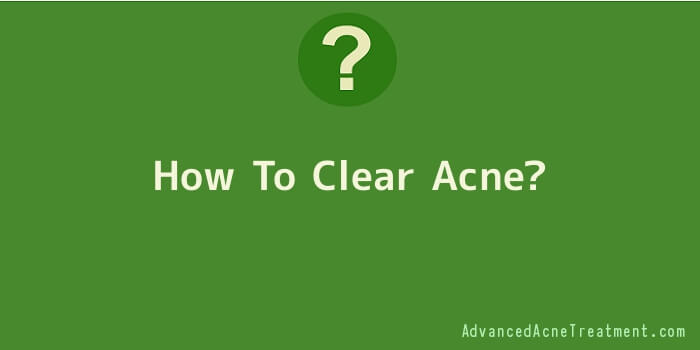
A common skin affliction that happens to many people worldwide for a variety of reasons, it is called acne. You probably have this at some point in your life. Blemishes that appear on your face can become unsightly and painful. When people have acne, sometimes it will go away on its own, but sometimes, it will get extremely bad.
Cystic acne is something that many people deal with regularly and very painful lesions that are very hard to make go away. There are simple things that you can do to prevent acne from occurring, and if you have it also make it disappear.
Here are some very simple steps that you can take on how to clear acne quickly and effectively, potentially preventing it from coming back again.
Why Does Acne Occur?
Acne is a very fickle skin condition that can manifest for a variety of reasons. If you have a genetic predisposition toward having an oily face, this can lead to the development of acne. Certain foods that you eat can cause acne to occur, and also aggravating your face using certain cleansers. For many, it is literally a trial and error situation where you have to keep trying different solutions until you find one that works for you.
Acne typically occurs because the pores of your skin where the hair follicles reside become clogged with dead skin cells and what is called sebum. Sebum is the oil that is produced by the sebaceous glands within your pores, and when it becomes too thick, a blockage will occur.
In your pores, P. acnes live without any problems, until the blockage is in place. In an oxygen deprived environment, these bacteria can grow very quickly, and when it does, acne wills form.
Common Causes Of Acne
Most people that have acne get it for three reasons. First of all, if you are washing your face excessively, once you remove the oil from your face, your body will naturally try to replenish it. This will put your sebaceous glands into overdrive, causing too much oil to be produced, and once it mixes with the dead skin cells, acne will form.
The second reason that acne forms is because you have too many dead skin cells which is the result of not using facial cleansers that can exfoliate the top level of skin. By removing the excess dead skin cells, you can prevent the possibility of acne occurring if dead skin cells are too abundant.
Finally, acne can be caused by too much bacteria in the pores which can be caused by an internal problem. If your liver is not functioning properly, or if you have not had a colon cleanse for quite some time, this can lead to the development of acne because of the toxins in your body which are allowing it to manifest.
Clear Acne
There are a couple different ways that you can stop acne from occurring. The first is to not wash your face more than twice a day. You should also not use strong cleansers which can excessively dry your face, causing too much sebum production in your pores.
People that are under quite a bit of stress may also develop acne because your pores will shrink as a result. When they do, this makes it very easy for them to become blocked, even with the slightest amount of sebum and dead skin cells mixing together, leading to blackheads and whiteheads that many people get.
By relaxing every day, taking just 30 minutes to recover from a long day at work, you can diminish the stress that is causing your pores to shrink, leading to the possibility of not getting acne as frequently.
The real cure is to address the root cause of acne from the beginning and taking steps to stop the toxic build-up in the body. If your body has no toxic residues in excess, then the toxins will not have to be excreted through glands in the skin sebum, pores are not clogged; bacteria cannot multiply and will receive no points.
Although, there are many products on the market today that claim to have the best solution, by simply staying well, removing internal toxins, and not excessively drying your face, you can look forward to a much clearer complexion by using these simple tips on how to prevent acne every day. These tips will also work for you if you have genetically oily skin, or if you use makeup regularly.
